Krishna Shenoy, Librarian/Archivist and John Slate, City Archivist, Dallas Municipal Archives. This is the fourth installment of a series of articles that commemorate the 50th anniversary of the Society of Southwest Archivists.
A good newsletter has two uses - its immediate use to convey timely information and report on membership activities; and its later use as a historical snapshot of where we were, what we did, and how we did it. The past issues of The Southwestern Archivist area chronicle of the organization during good times and bad, a look at the past issues and concerns of the archives community, and a record of achievement among SSA?s members.
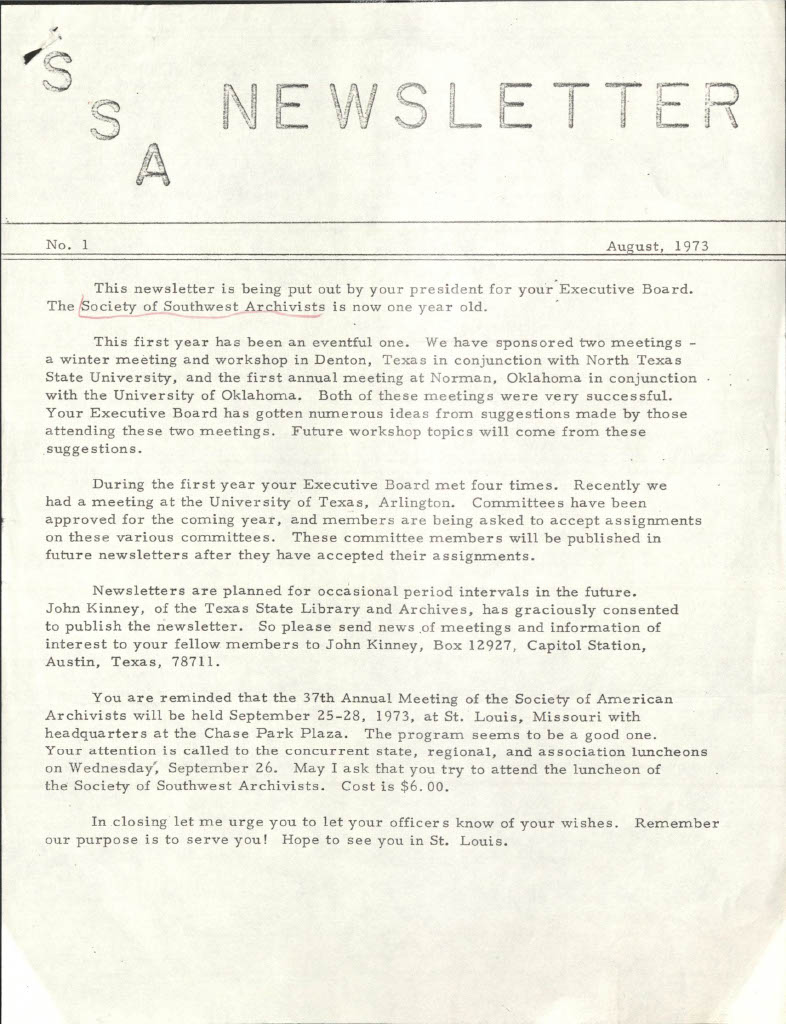
During the1970s, one of the significant accomplishments of SSA President A. Otis Hebert Jr. was the inception of a quarterly newsletter. Hebert produced the first issue in August 1973 and it was simply named- "The Newsletter". John M. Kinney, Texas State Archivist at the time, was named as Publisher. Upon his election as SSA President, Kinney chose Larry Sall of the University of Texas at Arlington as editor. Sall produced five issues and was succeeded by Chris LaPlante of the Texas State Archives. LaPlante served from the fall of 1976 through the summer of 1980. The familiar region logo makes it's appearance during this time.
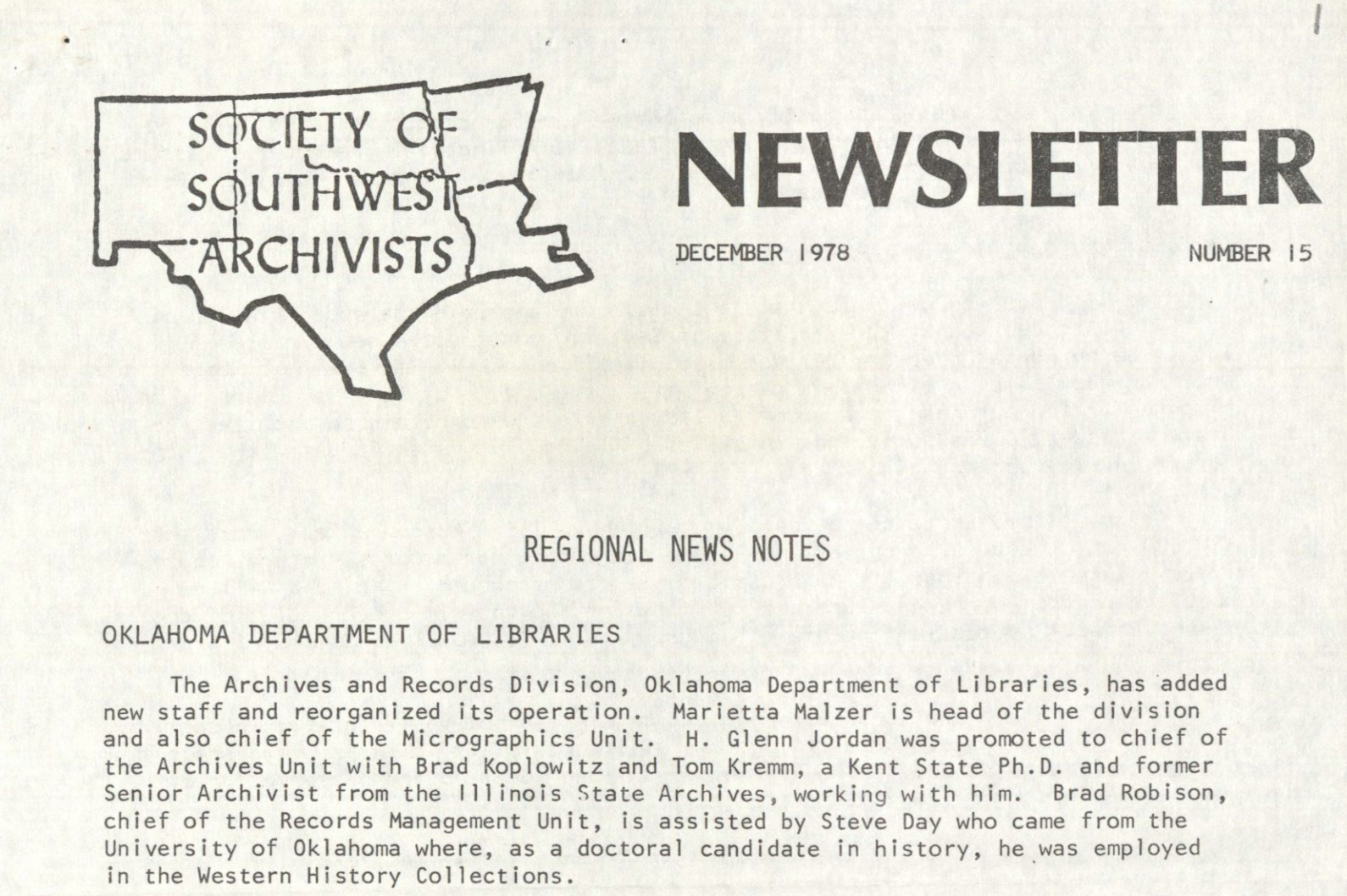
Vicki Sullivan of the Oklahoma Historical Society served as editor during 1980-1981. She was succeeded by Lauren Brown of the Woodson Research Center at Rice University, who began her tenure as editor in 1981 and continued the post through the Spring of 1984. She was succeeded by David L. Chapman, university archivist at Texas A&M University, who served through the spring 1987 issue. Among other things, David introduced clip art and fajita recipes to the still untitled newsletter. During his editorship the Sterling C. Evans Library at Texas A&M graciously printed "The Newsletter" at no cost to SSA.
Michael Heskett of the Local Records Division of the Texas State Library and Archives assumed the editorship with the Summer 1987 issue and continued through the Winter 1989 issue. He changed the numbering system from a simple consecutive number to a volume and issue number. Dr. Frank de la Teja, then assistant archivist at the Texas General Land Grant Office, began to edit the newsletter with the Spring 1989 issue and continued to serve through the Winter 1991 issue.
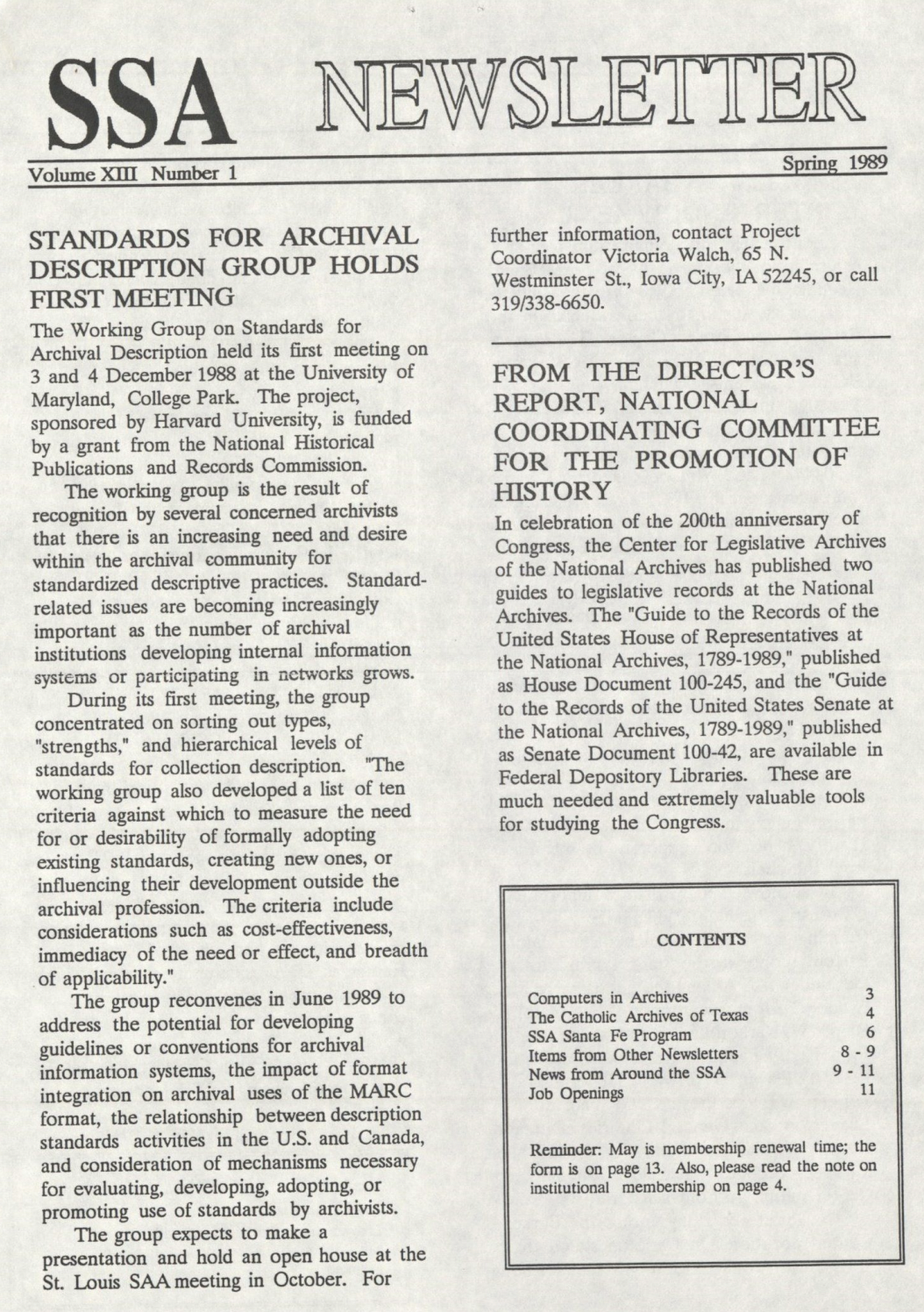
Frank de la Teja was succeeded by Leon C. Miller of Tulane University, who made a lasting impact upon the look and content of the publication. His first issue appeared under the new and current title The Southwestern Archivist, a name approved by the executive board in May 1990. Lee introduced a number of new and exciting features into the newsletter including for the first time, identifying authors of articles.
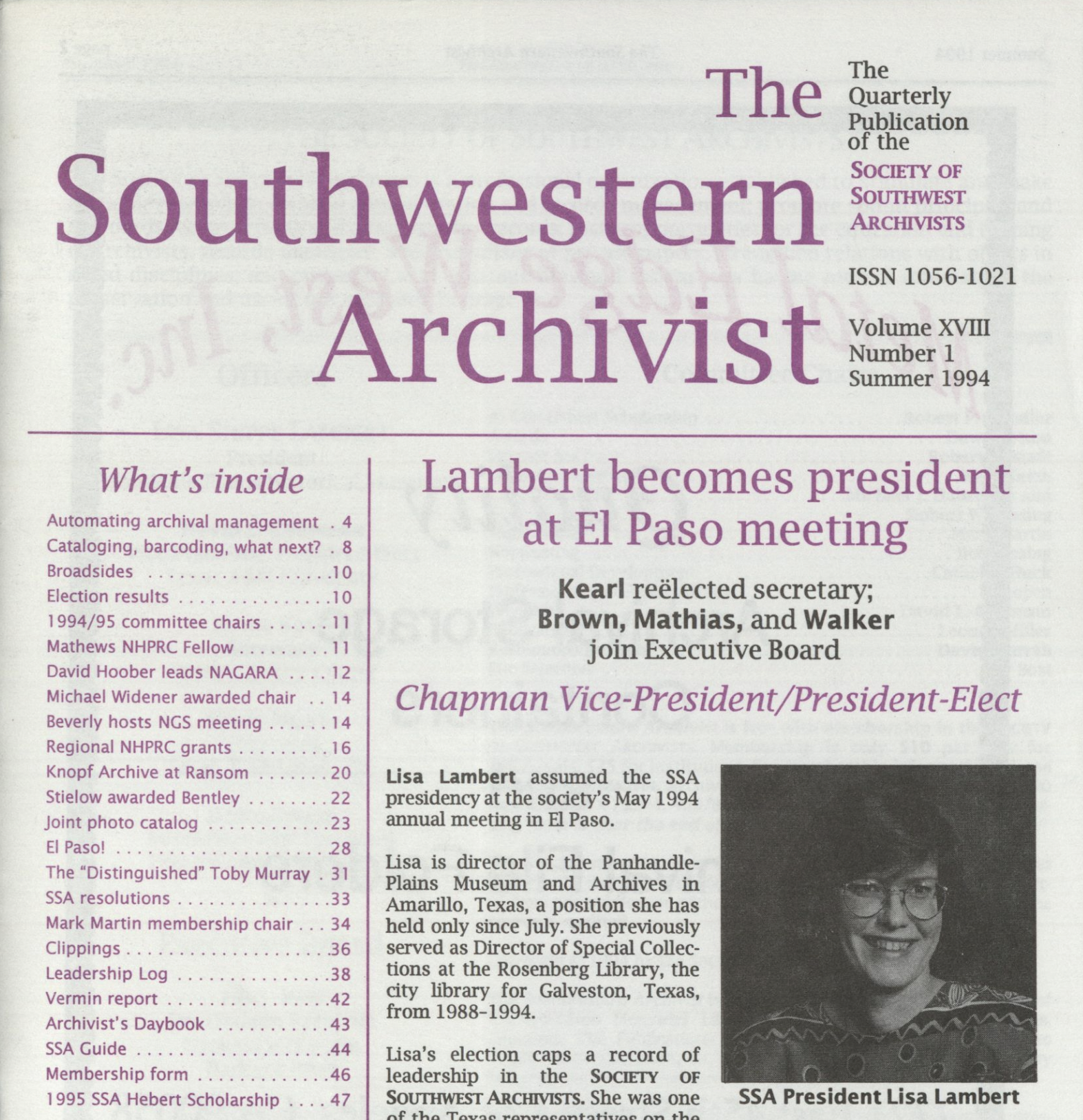
Issues of The Southwestern Archivist were traditionally printed and mailed to members and institutions. Its look was greatly improved, and consistently generous advertising revenue ensured a professional, good looking product. Miller stepped down in 1996 and was succeeded by Barbara Rust of the National Archives Federal Records Center in Fort Worth; she was succeeded the following year by a series of editors with brief terms between 1997 and 2003, including Glenn McMullen, Casey Greene, Carol Roark, Sharon Perry Martin, John Slate, and Tara Z. Laver. In 2003, the first digital issue was introduced and recipients had the option of receiving both the print and/or digital version of the newsletter.

The newsletter covered local events, new exhibits, projects, and employment opportunities, but it also reported on national and international developments, archival publications, and notable changes in archival leadership across the region.
Amanda York Focke, Rice University, assumed the editor's mantle in 2003 and served through 2007. She was followed by Katie Salzmann and Kris Toma, both Texas State University, who co-edited through 2012. They were followed by Lauren Goodley (Texas State University) and Kate Blalack (Woody Guthrie Center), who co-edited through 2014. Lisa Cruces, University of Houston, served as editor 2014-2016. She was followed in by Amanda Norman, who served 2016-2019.
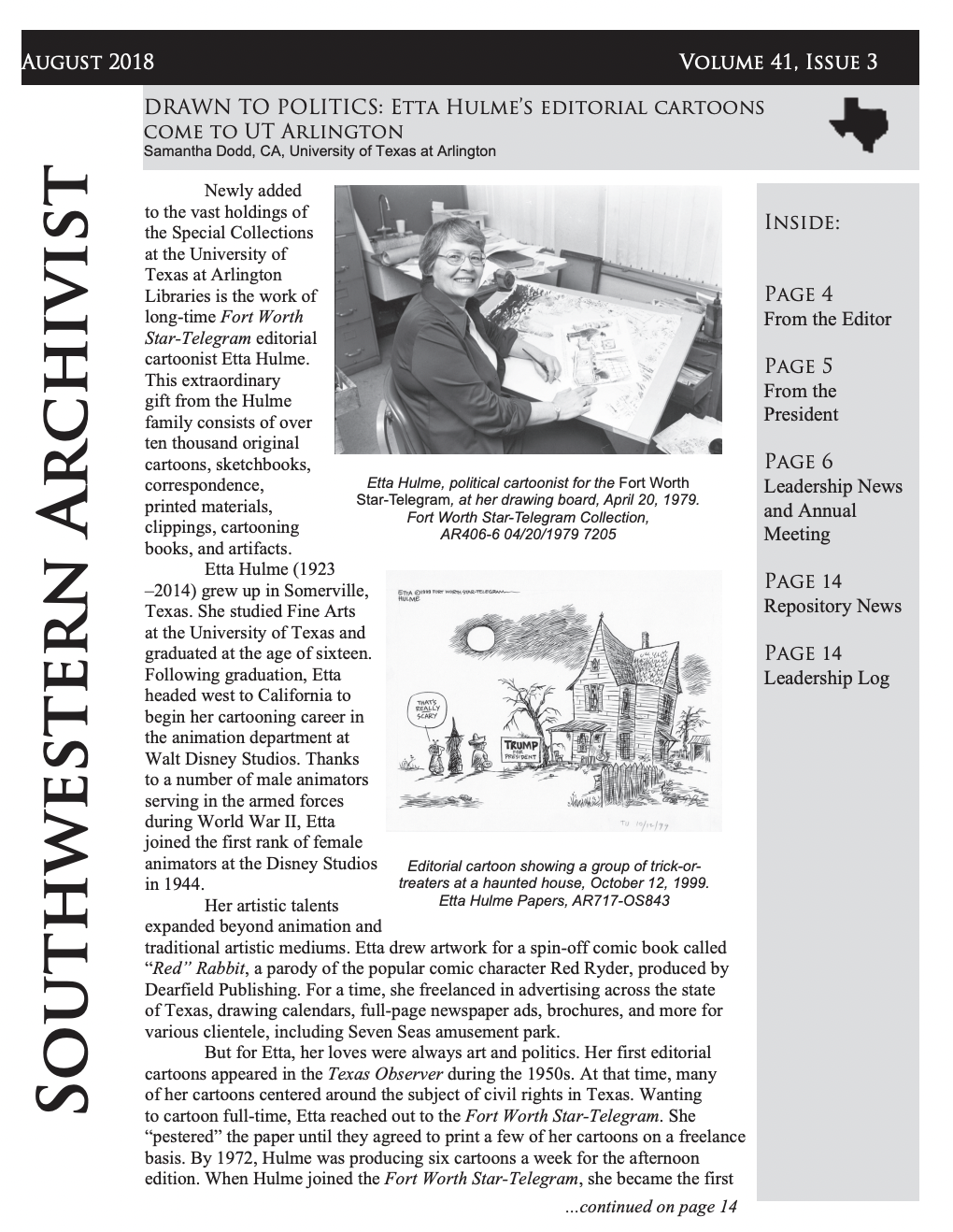
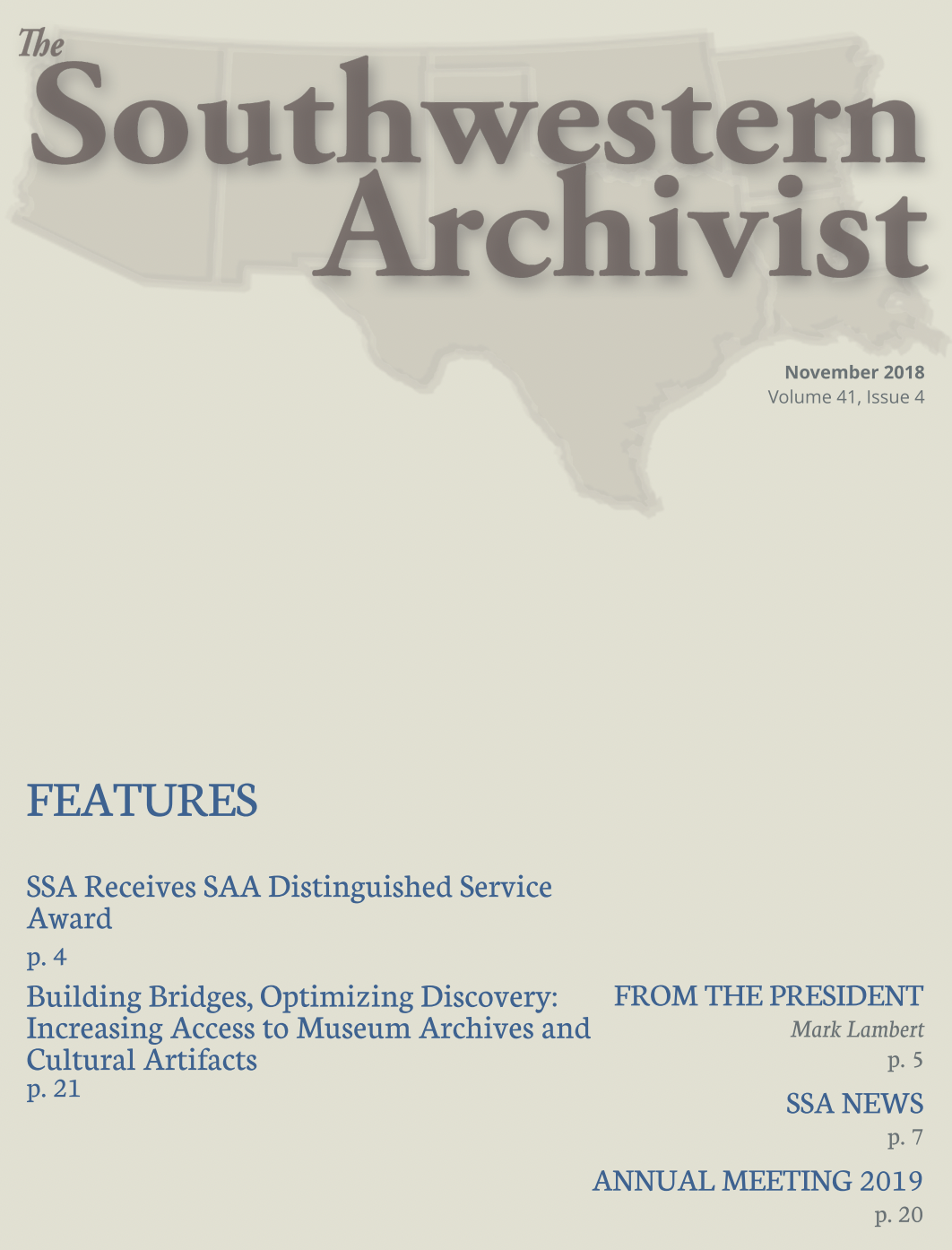
In mid-2018, the editorial team decided to transition the newsletter from the old program (InDesign) to LucidPress. Streamlined, and user-friendly LucidPress, made designing the newsletter easier and wouldn't require the same level of technical training for incoming Editors that InDesign demanded. The transition made a huge improvement on the aesthetic quality of the newsletter, as seen between the August 2018 issue and the November 2018 issue. In addition to new software, which ultimately reshaped the design and feel of the newsletter, a cover page was included, giving the newsletter more the appearance of a journal. Furthermore, the "Talk Of The Region" section was added to distinguish articles about individual repositories from those that covered a broader range of institutions or areas in the southwest.
In 2020, under the leadership of Editor Nicholas Wojcik, Scholarly Publishing Librarian at the University of Oklahoma Libraries, the newsletter went to a solely digital format, and the print version was discontinued. In keeping with the times, Wojcik and the Diversity and Outreach Committee began a bi-annual feature highlighting diverse collections and diverse voices in archives. The move to a digital only format allowed for more editorial and creative freedom, and under the editorship of Krishna Shenoy, Librarian/Archivist, the newsletter is now in color and not bound to traditional print layouts. This move to color, conveniently coincided with SSA's new branding scheme creating a more unified appearance across all of SSA's communication platforms, including the website, social media, and the newsletter. The newsletter continues to serve admirably as the principle means of communication to the membership about activities and actions of the Society.
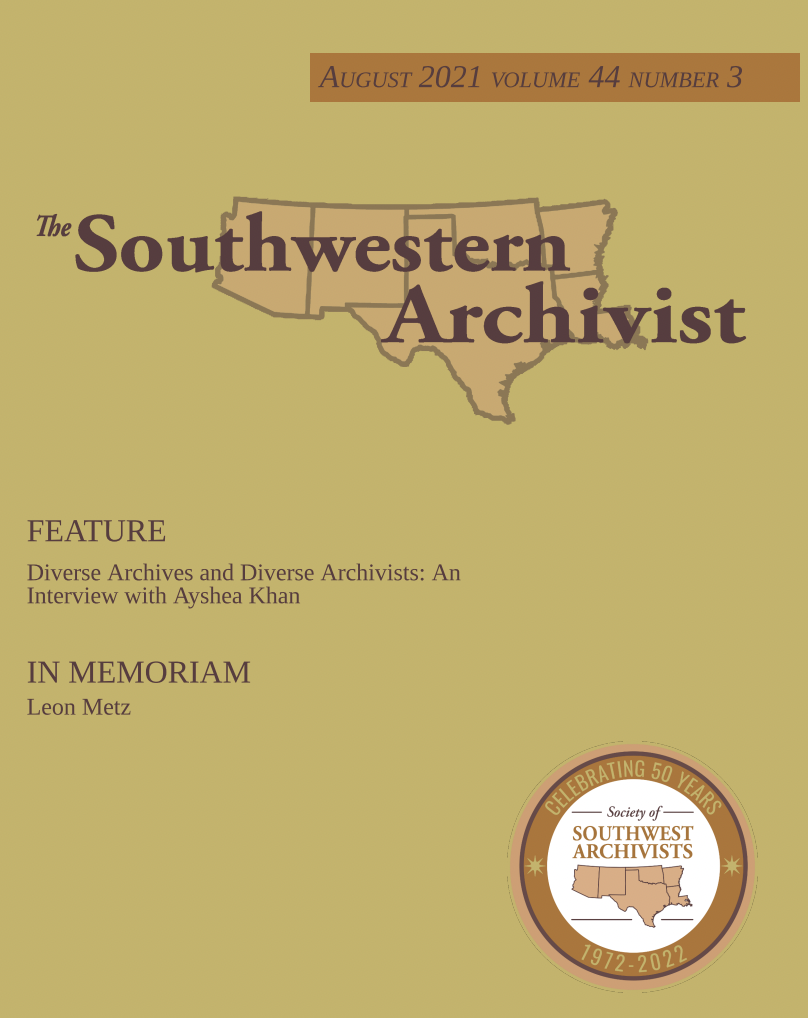
Caption: Images in this blog post prior to 2003 are from the Society of Southwest Archivists Collection, Texas Collection and University Archives at Baylor University.